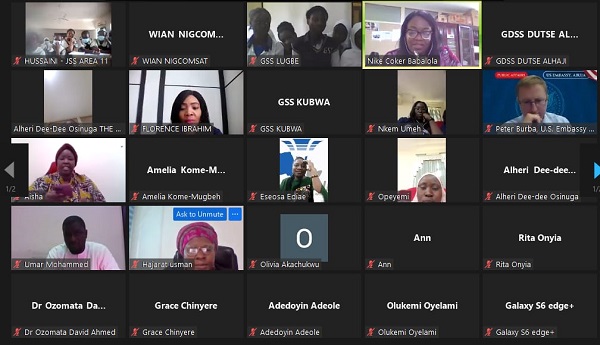
The Nigerian Communications Satellite Limited (NIGCOMSAT) has said that the percentage of girl child in the digital world will increase when they are taught how to use the internet responsibly.
The managing director, NIGCOMSAT, Dr. Abimbola Alale, said this during her address at a programme hosted by the Women in Aerospace Nigeria, NIGCOMSAT chapter, today (May 20, 2022).
The programme, themed “Access and Safety” which had various representatives from schools within Abuja was geared to celebrate girls in ICT.
Alale said about 70 per cent of representative in the media space are majorly boys and NIGCOMSAT wants to balance that by bringing in more girls aboard.
“In the world we live in right now, we all react to different amplified digital services on the different digital platforms. It has become very necessary that we are all prepared, especially girls. Women In Aerospace Nigeria has decided to be a major contributor as part of our social response to corporate social responsibility. We must prepare girls because we are very passionate about them.
“Yes, we are human. We do love both genders but we must prepare the girls because they are fragile and need attention. They are not relegated but we just want to make sure that the percentage of girl-child in the digital world increases.
“Digital literacy is the ability to confidently and creatively use technology to meet the demands and challenges of living in this space. According to the International Telecommunications Union (ITU), girls cannot become digitally literate if the gender gap is not eliminated and that is one of the reasons, we are doing this to close the gap,” she said.
Alale also urged parents to allow their children use their phones, so that they can be digitally-inclined. She stressed that she wants every child out there to know the pros and cons of using the internet, so as not to be victims of predators.
“Going forward, most of the things that Women in Aerospace Nigerian national chapters teach is about knowing your right and to help protect the information you put online. We want to be able to mentor you [girls] so that you will only put on content that will benefit you and the society.
“We want you to prepare yourself to become digital literates and be responsible citizens on the internet; also, to see it as a means of making money when you put out good content,” she added.

